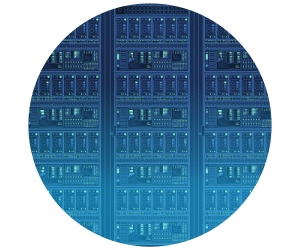More Control Than Cloud, Less Complexity Than On-Premises
Under the DCaaS model, state and local agencies pay a predictable, recurring cost for a managed data center. Power, cooling, monitoring, rackspace, asset management, lifecycle management, connectivity and security are all managed by the DCaaS provider.
“The only thing the customer is responsible for is the application,” Danciger says. “Everything from the OS layer down is handled by the provider.”
READ MORE: One county worked to optimize their data center.
This gives agencies the equivalent of a private cloud, but they’re off the hook for supplying the staff and resources to maintain the accompanying infrastructure. Instead, bespoke service-level agreements give agencies the ability to customize hardware and negotiate contracts accordingly. For example, customers can often choose their own server and operating system architecture. In this way, each DCaaS engagement is unique.
Another benefit: With DCaaS, local governments avoid competing with the private sector for data center management staff. This is especially beneficial for small and remote cities and towns that may otherwise struggle with staffing shortages.
“Some state and local agencies might have just one or two people managing a data center,” Danciger said. “If one of those people is sick or goes on vacation, or if something breaks in the middle of night, you’re in a tough spot.” With DCaaS, 24/7 management and redundant staffing are part of the package.












